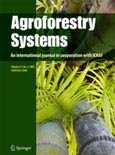Around 16 Mha of land is estimated to be under oil palm agriculture in insular Southeast Asia. There is a growing need to verify that palm oil is produced without causing negative environmental effects. Monitoring changes in the extent and condition of oil palm plantations by remote sensing is the first necessary step. The changing appearance of oil palm plantations as they age and the varying types (industrial and small-holder) of oil palm cultivation renders this monitoring task difficult. In this study we assess the potential of visual and automated mapping methods for regional-level oil palm monitoring by comparing the results of two recent large-scale mapping efforts in Borneo Island, shared by Indonesia and Malaysia. Large differences were found between visual and automated methods, mainly related to the concept of land use versus land cover. Automated oil palm mapping produced 35% smaller oil palm extent than visual mapping for plantation areas established before 2005 and was not able to detect young or newly established plantations. In total, the visual method detected 8.0 Mha of industrial oil palm plantation area, within which the automated method detected merely 3.8 Mha of closed canopy oil palm, highlighting the crucial importance of visual mapping approaches for outlining boundaries of industrial oil palm plantations. However, the automated approach enabled estimation of the extent of (1) productive closed canopy oil palm area and other land-cover types within known industrial plantations and (2) closed canopy oil palm stands outside of known industrial plantations (0.6 Mha). These results advocate the combined use of visual and optical oil palm mapping approaches for comprehensive regional-level monitoring of oil palm plantations in insular Southeast Asia.
Download:
DOI:
https://doi.org/10.1080/01431161.2018.1479799
Altmetric score:
Dimensions Citation Count:

























